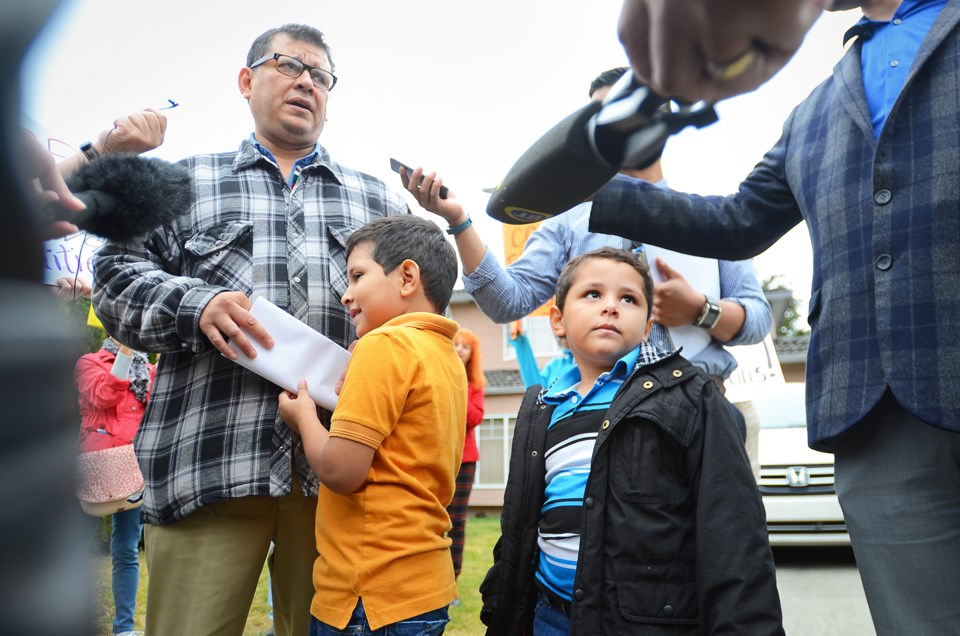A community under attack.
It’s not only the name of a report by housing activists that sheds light on the effects the city’s development plans and demolitions have on the Metrotown neighbourhood, but a growing sentiment from the people who rent and live there.
This week, members of the Stop Demovictions Burnaby campaign gave the media a tour of an area undergoing redevelopment near Dunblane Avenue and Imperial Street.
The group chose the area because every building on the block is scheduled to be demolished and eventually developed into new highrise towers.
In all, 19 buildings will be demolished to make way for four development projects.
The study noted development companies Polygon and Amacon bought up all the apartments on the block.
The study also noted the 234 units on the block are only about a third of the 684 apartment units facing demolition in the Metrotown area. The study suggested nearly 1,400 people face eviction and displacement.
They are residents like Martin Lenin-Fernandez, who lives in an apartment on Imperial. He’s a single dad taking care of his two kids, who just moved in with him from Nicaragua. He’s being evicted from his apartment at the end of June.
Lenin-Fernandez, who moved to Canada in 1990 and has lived in Metrotown for eight years, said he has no idea where he’s going to go at this point.
“Every day my blood pressure is up and I don’t know what to do,” he told the media during the tour of the neighbourhood, adding he’ll also have to find a new school for his two young children.
The Burnaby resident said he currently pays $725 a month for his apartment, but now he expects his rent to double for any new place he lives.
He said he’s applied to B.C. Housing, but the organization can’t make any promises.
The group behind the study and campaign, which includes the Alliance Against Displacement, ACORN Burnaby and the Metrotown Residents’ Association, is putting the blame on the city’s development policies and the developers.
The report makes four recommendations to the city, suggesting that the city should:
· put a moratorium on demolishing apartment buildings;
· rehouse the residents displaced by the “demovictions”;
· create a new community plan that focuses on current residents most vulnerable to displacement; and
· dedicate city-owned land to social housing.
Ivan Drury, an organizer with the group, said half the people who took part in the study said they don’t know where they’ll go when evicted and are facing being homeless.
He said proposed plans for the area say nothing about current residents, suggesting the city and council are sending a message to low-income and working-class people that they don’t have a place in Burnaby.
The report found that none of the tenants surveyed had received any support from the city.
Drury also pointed out that from 2003 to 2006, the Metrotown area was the number 1 place where government-sponsored refugees landed in B.C., but now the area houses practically none.
“This is a liquidation policy that is narrowing the demographics of this community and turning it into a place where belonging is dictated by money,” he told the NOW.



